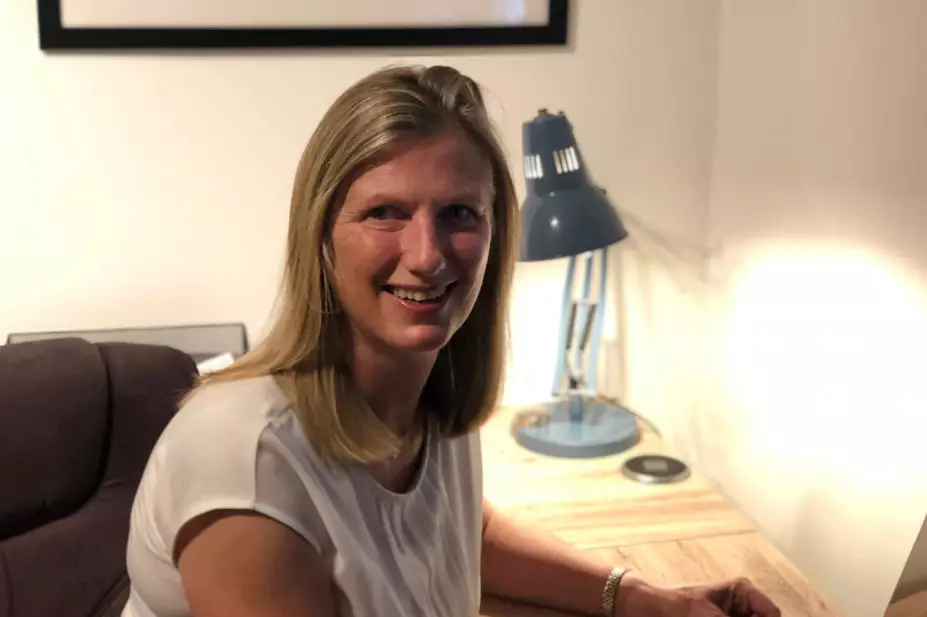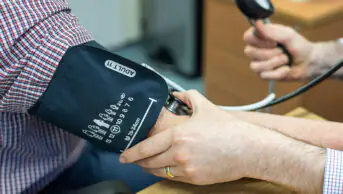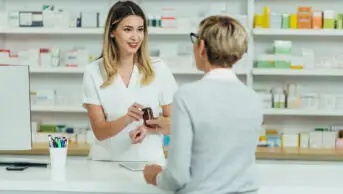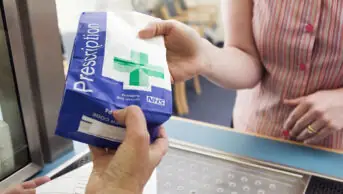
Kate Jenkins
Returning to independent prescribing after some years away was “really scary” for Kate Jenkins, but it has given her a satisfying career where she feels she is making a difference to patients.
Jenkins qualified as an independent prescriber in England in 2008, after first being a supplementary prescriber, before moving to Wales in 2011. She had been working in a GP practice in England but found the same opportunities did not exist in Wales, so worked in hospital pharmacy for a while.
However, in 2016, she moved to a job as a pharmacist for a cluster of GP practices and then, in 2018, to working solely for one of the practices, The Practice of Health in Barry, Vale of Glamorgan.
I did not like the hands-off approach — I could not wait to get back into clinical pharmacy and seeing patients
Jenkins describes returning to independent prescribing as “really scary” but says that she “always wanted to work in clinical pharmacy. I did not like the hands-off approach — I could not wait to get back into clinical pharmacy and seeing patients”.
She took things slowly at first, starting off with repeat prescriptions for chronic conditions before moving into additional areas. “A lot of my prescribing is for hypertension and also cardiovascular disease,” she says. She also initiates medicines for patients with atrial fibrillation and does a lot of work with residential and nursing home residents.
Another string to her bow is dose reduction for patients on opioids and substance misuse prescribing, under a shared-care arrangement with a specialist unit. She does not prescribe for minor ailments, although the practice has a nurse prescriber who does.
“I work three days a week for the practice. It is very much a split between medication reviews in the morning and then my afternoon is query answering, dealing with clinical letters and prescriptions, medicines reconciliation and so on.”
The vast majority of patients have been very receptive to her input, says Jenkins, and often appreciate her being able to spend time explaining their medicines.
There are a few where at the end of the consultation you have to make an appointment with the doctor
“But it has taken a while. There are some patients who know their annual review is going to be with me and just phone me up. But there are a few where at the end of the consultation you have to make an appointment with the doctor because they are not going to take it from you.”
Jenkins is also involved in mentoring younger pharmacists, since the practice often hosts community pharmacists who are doing their independent prescribing course, and she is training to be a mentor to pharmacy students who are moving to having independent prescribing embedded in their university courses.
But she confesses to some reservations about every pharmacist becoming an independent prescriber. “You have to be very much in the right environment,” she says, adding that she is concerned that pharmacists could end up working in isolation.
We have to show that we add value
Support from those around her was important when Jenkins returned to independent prescribing and she found this impacted on the level of prescribing she did. Her current practice is enormously supportive, with designated time each week to discuss any issues or concerns with a GP, she says.
“We have to show that we add value and that what we are doing is over and above what someone who can’t prescribe can do.”
But she is keen that boundaries are respected within the practice — just because she is an independent prescriber does not mean she will sign any prescription for a patient she does not know, she says.
Quick fire questions
- How many prescriptions do you write? “Probably about 100 a week — I work three days a week and write around 30 a day. And we still have paper prescriptions in Wales.”
- Do you do more prescribing or deprescribing? “Prescribing but I do deprescribe as much as possible. I will always review that as part of my prescribing and deprescribe if appropriate.”
- Do you have any regrets about qualifying as an independent prescriber? “None at all. I love the fact that I can complete the whole task.”
- What is your favourite time of the working day? “I just like the patient contact. Talking to people and feeling that we are actually doing something worthwhile. I get a huge sense of satisfaction.”
- How do you destress? “I don’t work full-time so that is probably helpful! I have two Labradors whom I walk on the beach at least once a week, and I go to the gym three or four times a week. I also have a campervan and we take that away.”
- What makes your heart sink? “Just these very chronic patients that I just don’t feel I can help enough … they are sometimes just not in a position to engage with you.”
- What makes your heart sing? “Feeling I have made a difference! When I put the phone down and someone is really happy they have had that consultation.”
Click here to return to ‘Meet the prescribers: pharmacists transforming care for patients’


